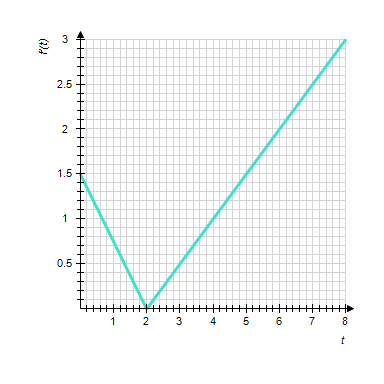Use the position equation  , where
, where  represents the height of an object (in feet),
represents the height of an object (in feet), ![]()
src="https://sciemce.com/media/3/ppg__cognero__Section_2.7_Nonlinear_Inequalities__media__eea8077d-b158-4733-bf13-7559c41074f1.PNG" style="vertical-align:middle;" /> represents the initial velocity of the object (in feet per second), 
A projectile is fired straight upward from ground level 
?
A. 
B. 
C. 
D. 
E. 
Answer: A
You might also like to view...
Find the derivative of the function.f(x) = cos 
A. f '(x) = 
B. f '(x) = 
C. f '(x) = - sin 
D. f '(x) = - sin 
Solve the problem.The function V(r) = 4?r2 describes the volume of a right circular cylinder of height 4 feet and radius r feet. Find the instantaneous rate of change of the volume with respect to the radius when r = 11. Leave answer in terms of 
A. 44? cubic feet per feet B. 8? cubic feet per feet C. 88? cubic feet per feet D. 22? cubic feet per feet
The graph of the derivative ?


style="font-size:14.6667px;vertical-align:middle;" /> over the interval 
?
?
?
A.
B. ?
C. ?
D. ?
E. ?
Find the reciprocal, if it exists.- 
A. 
B. - 
C. 
D. 1





